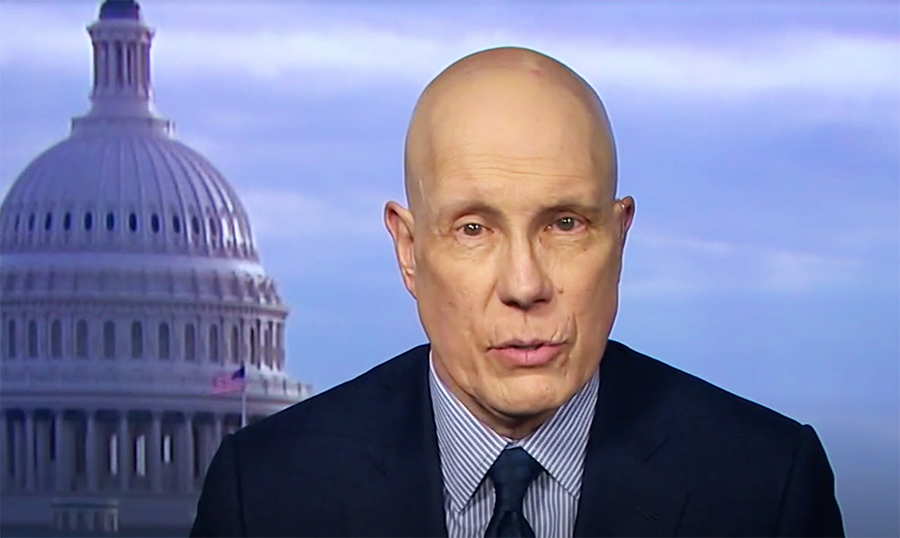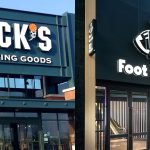On Thursday, The National Retail Federation and Matthew Shay President & CEO, shown above, sent a letter to President Trump and administration officials urging the federal government to produce national guidance for state and local governments seeking to clarify “essential retail businesses and services” for their communities.
…
Dear Mr. President:
The health and safety of employees, customers and families is the top priority for retailers in the United States. On behalf of the members of the National Retail Federation, we appreciate the swift efforts of your Administration to minimize the impact of the COVID-19 pandemic, both in terms of public health as well as the broader economic implications domestically and around the world. Retail is the nation’s largest private-sector employer, supporting one in four U.S. jobs — 52 million working Americans; the decisions being made in Washington this week will have lasting effects on our businesses, our employees and the communities we serve.
Retailers are following recommendations provided by the CDC and share the immediate goal of slowing the spread of the COVID-19 virus. Additionally, many retailers are stepping up during this global health crisis to assist with drive-through COVID-19 testing sites on their properties. Families are counting on retailers right now and retailers are determined to be there for them. This is an unprecedented situation that demands an “all hands on deck” approach, and retailers are eager to do their part.
Unfortunately, there remains a need for clear national guidance to resolve questions caused by a number of conflicting state and local orders that are triggering consumer, worker and business confusion, leading to cascading negative impacts on communities across the country. Our members report that towns, cities and counties are deviating from instructions offered by governors and state agencies.
- Some localities have determined that pet stores, which provide pet food and medicines, are not “essential” despite the millions of pet owners who rightfully need specialty supplies for their pet’s wellbeing.
- Several jurisdictions have overlooked the important role distribution centers and transportation logistic companies play in the retail industry. Retailers, grocers and restaurants cannot resupply without access to their distribution centers.
- Truck drivers and logistics companies need access to federal and state highway rest areas. Regrettably, some states have chosen to close rest areas they control while setting overly stringent curfews on these critical workforces serving our communities.
- When state and local governments give blanket orders to “close non-essential retail” and “limit mass gatherings to 50 people,” it causes panic and alarm. Consumers then swarm retailers, which exhausts existing supplies and overwhelms employees.
While we are working with municipal and state officials on the examples above, we ask the Administration to clarify that CDC instructions to limit gatherings to less than 50 people should be relaxed or exempted for large format grocery stores, big box retail and wholesale clubs. Facilities with significant square footage can adequately accommodate more than 50 shoppers while effectively managing social distancing practices among customers and employees.
When state and local governments enforce 50-person limits — often through law enforcement — it creates long lines outside stores, further alarming consumers that groceries and other supplies may be in limited quantity. Most often that is not the case. Further, having hundreds of customers lined up outdoors defeats the mass-gathering guidance.
Additionally, we request that your Administration issue guidance to clarify “essential retail businesses” at a national level. The time has come to strike the right balance and we recommend these examples as a model for any state or local government issuing similar directives:
- Grocery stores, convenience stores and other establishments engaged in the retail sale or provision of food, pet supply, big box stores, wholesale clubs, and any other retailer of household consumer products (such as cleaning and personal care products). This includes stores that sell groceries and other non-grocery products, and products necessary to maintaining the safety, sanitation and essential operation of residences;
- Local, regional and national transportation and delivery services, including but not limited to businesses that ship or deliver groceries, food, goods or services directly to residences and mailing and shipping services;
- Facilities supporting interstate delivery of goods, distribution centers, warehouse facilities and trucking and highway rest stops;
- Pharmacy and health care services;
- Convenience stores;
- Agricultural and farm retail stores, often the only place to purchase livestock feed, and one of the few places first responders can obtain critical supplies;
- Gas stations and auto supply stores, auto repair and related facilities;
- Hardware and home improvement stores;
- Restaurants and other facilities that prepare and serve food, if operating under rules for social distancing; and,
- Retailers that supply other essential businesses and people working from home with the support or supplies necessary to operate (for example, electronics, telecommunication and mobile technology).
Finally, we respectfully request that your Administration remain open to adding more categories to the specified “essential retail businesses” list as conditions continue to change. We will be sharing this suggestion with state and local governments through our state retail association partners.
Thank you for your attention to this concern and your ongoing leadership.
Sincerely,
Matthew Shay President & CEO
cc: The Honorable Chad Wolf, Acting Secretary of Homeland Security, The Honorable Elaine Chao, Secretary of Transportation Administrator Peter Gaynor, Federal Emergency Management Agency, Deputy Administrator Jim Mullen, Federal Motor Carrier Safety Administration, State Retail Associations
Photo courtesy CNBC














